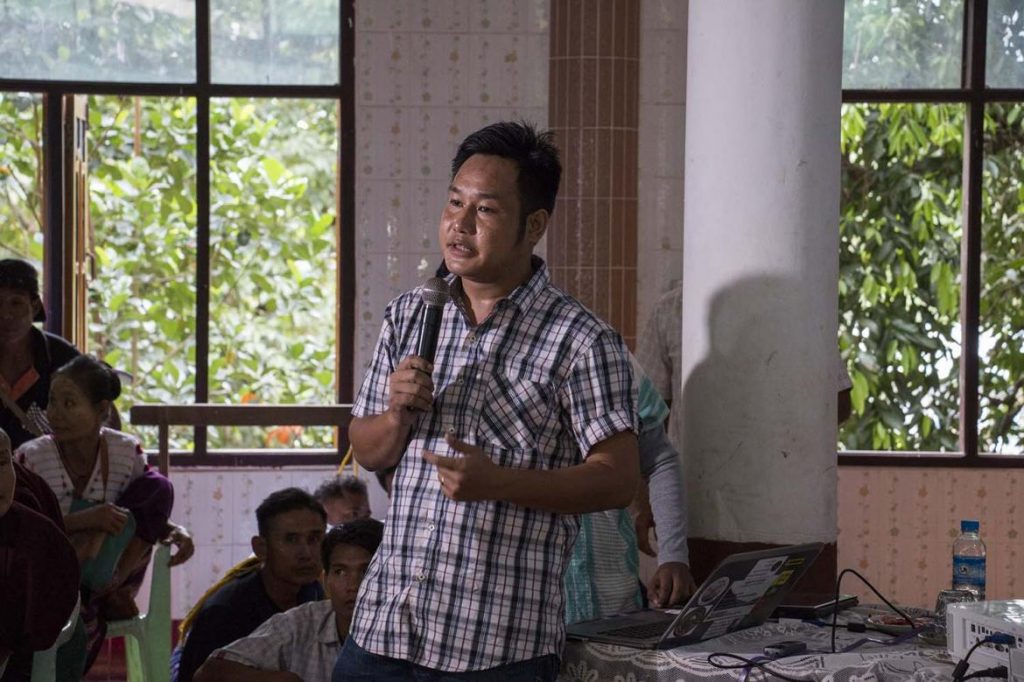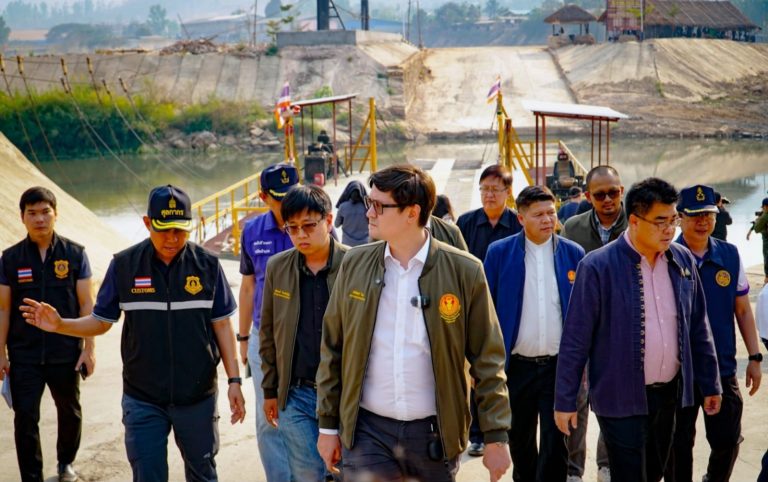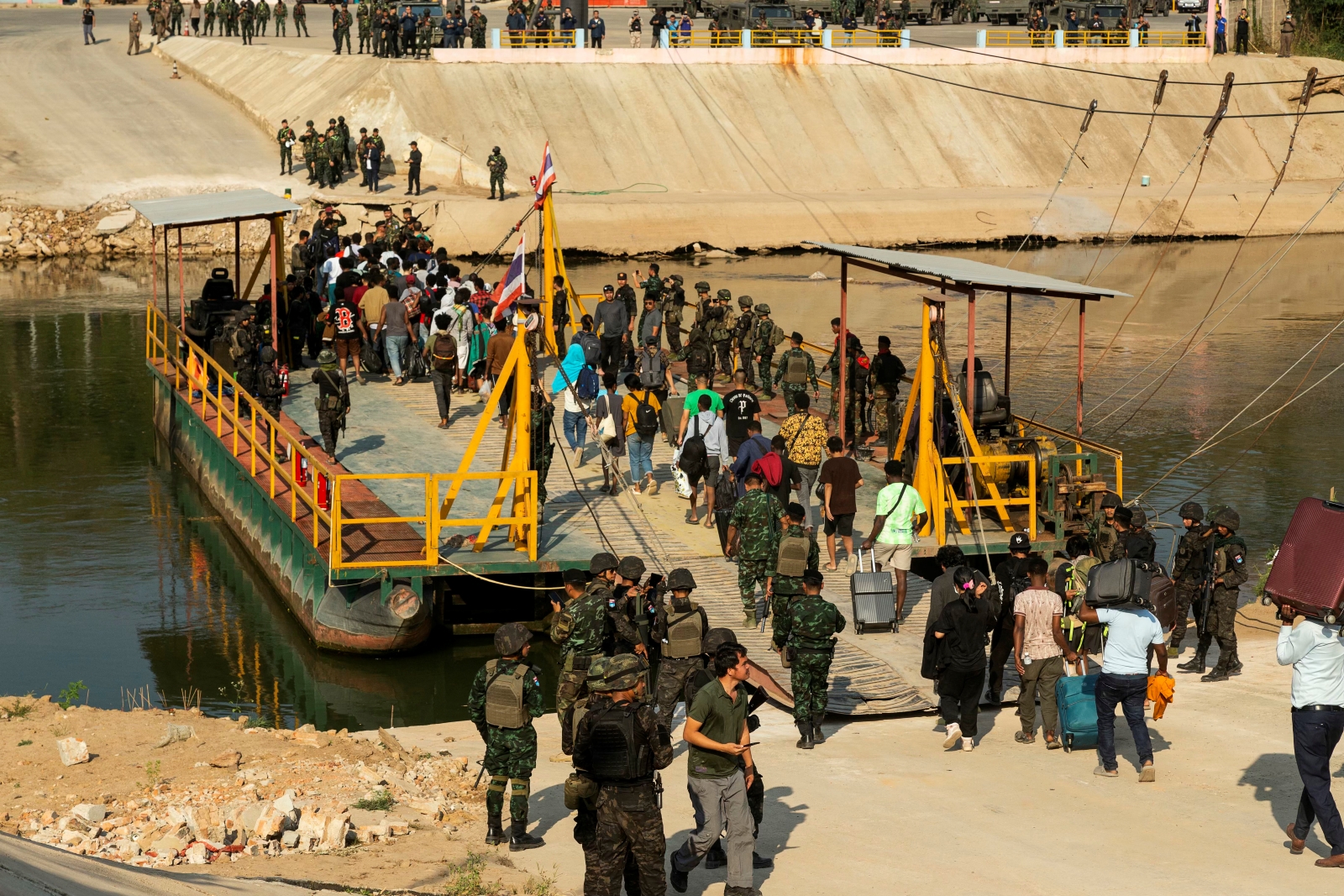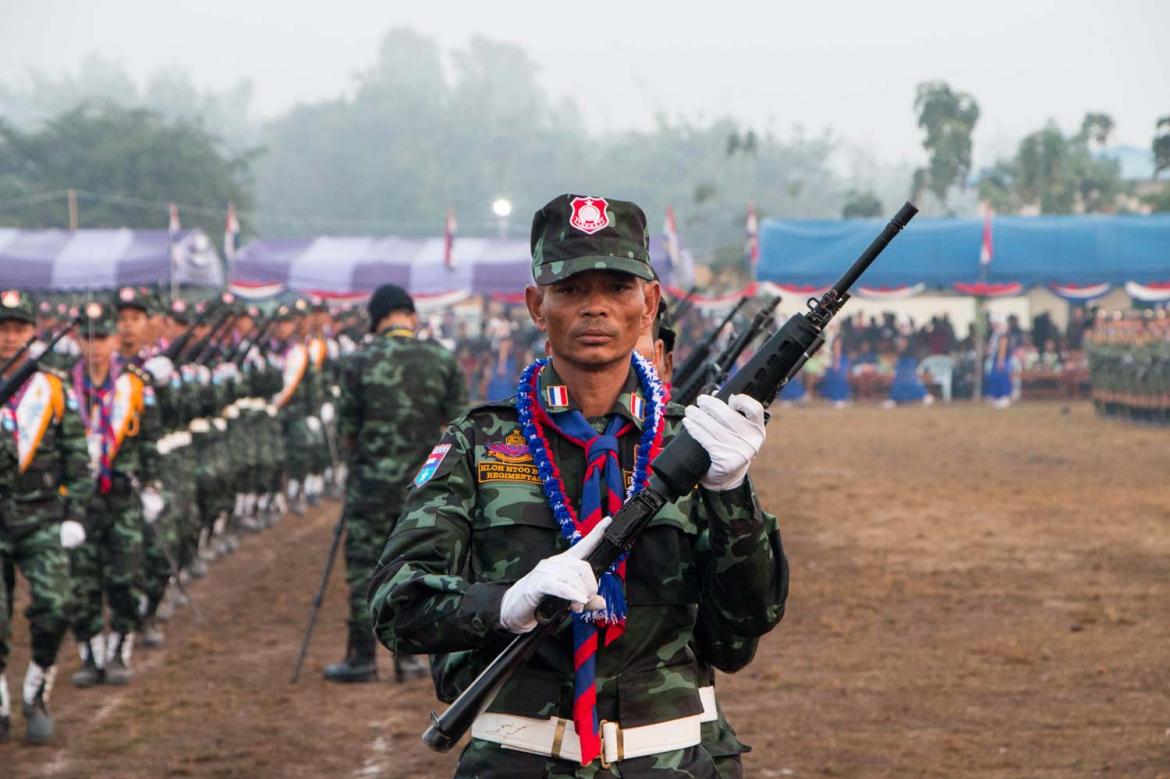The union and Kayin State governments seem to be on a collision course over a controversial coal-fired power plant project.
By SU MYAT MON | FRONTIER
THE FATE OF a proposed coal-fired power plant in Kayin State remains in doubt, with government officials appearing to walk back comments from Union Minister of Electricity and Energy U Win Khaing that Nay Pyi Taw would not grant permission for the project.
Speaking at an infrastructure seminar on March 14, Win Khaing reportedly said that the 1,280-megawatt plant near the state capital, Hpa-an, would not be approved because it was not required and was unpopular with locals.
His comments were published in local newspaper 7Day Daily and referred to in an April 4 statement by NGO EarthRights International calling on the government to formally cancel all proposed and suspended coal projects.
They delighted local opponents of the project, some of whom celebrated by organising a football match.
Support more independent journalism like this. Sign up to be a Frontier member.
Over the past month the mood of celebration has soured, however, as the Ministry of Electricity and Energy has not confirmed plans to reject the project.
The coal plant’s backers – Toyo Thai Power Myanmar Co Ltd, a subsidiary of Thai-listed TTCL, and the Kayin State government – both say they remain committed to the project.
Kayin Minister for Electricity and Industry, U Soe Hlaing, said the state government was yet to be formally notified about the cancellation of the project.
“The state government will continue doing our part to implement the plant,” he told Frontier on April 4.
Ko Htet Aung Mon, office manager for Toyo Thai Power Myanmar, said there had been no directive from the Union government to cancel the project. “It is still underway with the Union government, so we are waiting to hear the review,” he said.
In an April 9 statement to the Stock Exchange of Thailand, TTCL said reports that the project had been cancelled “has not been confirmed … from the relevant parties and reliable sources”. It added that an environmental impact assessment was being conducted, and no construction has begun because the company is yet to sign a memorandum of agreement for the project with the Ministry of Electricity and Energy.
TTCL is a joint venture between Thailand’s Italian-Thai Development and Japan’s Toyo Engineering established in 1985. It operates a 120MW gas-fired plant at Ahlone and recently received approval for a 356MW expansion at the site.
Ministry walks back comments
Under Myanmar’s constitution, state governments can only approve power projects up to 30MW, meaning the project cannot move forward without the green light from Nay Pyi Taw.
However, officials in the Union Ministry of Electricity and Energy have backtracked somewhat from the comments attributed to the minister.
U Aung Kyaw Htoo, the ministry’s deputy secretary for domestic and international relations and information, told Frontier on April 12 that the minister did not say precisely whether he would approve or reject the project.
“What he said was that if the public does not agree with the plant, it cannot be done,” he said, adding that the government currently has “no plan” to approve new coal projects.
“Our Union government master plan is that we will only get electricity from sources that are accepted by the public,” Aung Kyaw Htoo said.
Another senior official said on April 10 that the ministry wanted to review the plant’s environmental impact and whether locals object to the project.
“It is not like we disagree with the coal power plant in Kayin State,” U Soe Myint, the ministry’s deputy secretary, told Frontier.
He said the ministry is concerned about the proposal to supply coal to the plant by shipping it up the Thanlwin (Salween) River from Mawlamyine in Mon State.
Soe Myint confirmed that the union government’s policy was that if the public did not support the plant it would be cancelled.
State vs Union
Opposition to the project began after the state government signed a memorandum of understanding with Toyo Thai Power Myanmar in April 2017 to conduct a feasibility study for the proposed 1,280-megawatt plant near Hpa-an.
In October that year, the state government and TTCL signed joint venture and lease agreements for an 815-acre (333-hectare) site on the Thanlwin River near Thone Inn village with a concession period of 40 years.
The cost of building the power station was estimated at US$2 billion (about K2.65 trillion) and it was due to begin operations in 2023.
The state government would hold a 5 percent stake in the plant, which has been promoted heavily by chief minister Nang Khin Htwe Myint. A powerful figure within the NLD, she won seats in the 1990, 2012 and 2015 elections and is a member of the party’s Central Executive Committee.
Speaking at an investment fair in the state capital in November 2017, she said the government’s top priority was to improve electricity supply, followed by the development of tourism, agriculture and transportation.
The same month she spoke at a “consultation” with local communities about the coal project, which Frontier also attended. After urging them to accept the project out of consideration for the state’s development needs, she immediately left the event and refused to speak to attendees or hear their opinions.
Win Khaing, in contrast, comes from a private sector background, having run a successful engineering company before being appointed minister for construction in March 2016. His performance at the construction ministry has earned him the trust of State Counsellor Daw Aung San Suu Kyi, and in August 2017 she tapped him to lead the Ministry of Electricity and Energy, which had been floundering under former minister U Pe Zin Tun.
In late January, the ministry issued notices to proceed to four consortia for liquefied natural gas projects. At a power sector coordination meeting the following month, Win Khaing explained that while coal was technically feasible, it was too politically difficult to implement, so he had instead chosen LNG to meet Myanmar’s medium-term power needs.
Uncertain future
The lack of clarity over the proposed plant is a disappointment for opponents of coal-fired power as well as the communities near the project site that had objected to the state government’s plan.
The football match at Thone Inn village on April 4 was organised by residents of 11 villages to celebrate what they thought was the cancellation of the project.
The game attracted a crowd of about 500, said Thone Inn resident Saw Nay Lin Htoon, who said the village residents were now wondering if the celebration was premature.
The villagers were doubtful because the state government had not confirmed the Union government’s decision, he said.
Nay Lin Htoon was concerned that if the state government proceeded with the project despite the opposition of local residents it could lead to clashes.
“What I want to hear is the state government saying that it will not continue to build the coal-fired power plant,” he said.
Civil society and community groups opposed to the project have accused the state government of ignoring objections to the project and was pushing the union government to proceed with the project.
“Our [Kayin] government is not listening to us,” said Saw Thar Boe, coordinator of Karen Rivers Watch, one of about 130 civil society groups that has campaigned against the project.
He said the state government had also exceeded its authority by allowing work to continue on the project after the minister’s March 14 comment. On March 25, state government officials had come to Thone Inn and placed stakes in the ground marking the boundary of the project site.
Thar Boe said civil society groups were not opposed to development but believed there were better options than coal power.
In an open letter to the union government last year, they call for it to instead promote sustainable renewable energy projects that were consistent with the needs of local communities.
“What we actually need is technical help and a specific policy from the government to support [renewable projects],” he said.
TOP PHOTO: Saw Thar Boe, coordinator of Karen Rivers Watch, speaks at an event in Hpa-an, Kayin State in November. (Nyein Su Wai Kyaw Soe | Frontier)







